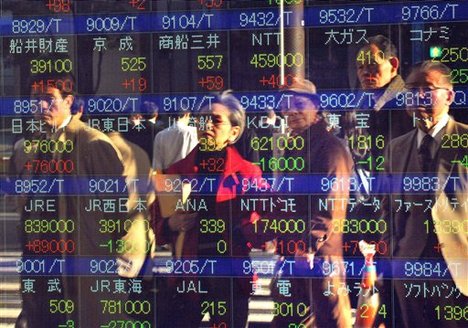Experienced Investor
Investors told not to panic as stock market falls

Stocks have slumped across the world over fears that a new Covid-19 variant could wreak havoc on business and travel.
In early trading, the FTSE 100 was down 3%, with travel companies, oil majors and banks hit hardest. The falls put the FTSE 100 on course for its steepest one-day drop in a year. The FTSE 350 Travel and Leisure Index was down almost 5%.
Shares in IAG, the owner of British Airways, fell more than 21% in early trading, while EasyJet fell 16%. Wizz Air fell by about 18%, and Jet2 9%.
The falls came after the UK government added six Africa countries to the travel red list after a new strain of coronavirus was designated a ‘variant under investigation’.
Sarah Coles, senior personal finance analyst at Hargreaves Lansdown, said: “Fears over the new Covid variant have gripped the markets and spread around the world, causing stocks to tumble, but there’s no need to panic. The market crash at the start of the pandemic revealed how important it is not to let short-term shocks put us off our long-term investment plans. They also showed the enormous value of regular investments at times like this.
“Market falls are never comfortable to live through, and there’s always the temptation to sell up and head for the hills. But periods of volatility are part and parcel of investing, and even when we get particularly sharp short-term falls, we shouldn’t let this put us off our long term aims.”
Russ Mould, investment director at AJ Bell, said: “Forget Black Friday; today has been renamed Red Friday after the colour of share price screens as stocks slump globally on fears over a new Covid strain
“The drop in the oil price the market’s way of saying it is worried about a reduction in economic activity, something which also explains the slump in metal prices. Markets are clearly speculating that a rapid spread of a more brutal Covid strain could once again derail the global economy. Banking stocks were also weak as they are closely tied to economic activity.
“The flipside of falling commodity prices is that a weaker oil price should provide some relief in terms of inflationary pressures. That may cause central banks to be more cautious towards raising rates in the near-term, however it does depend on whether the new Covid strain causes significant disruption or can be contained as best as possible in a rapid manner.
“Headlines calling it the ‘worst ever variant’ have caused investors to panic and dump shares in travel-related stocks for fear that we’re going to see tough travel restrictions once again.”